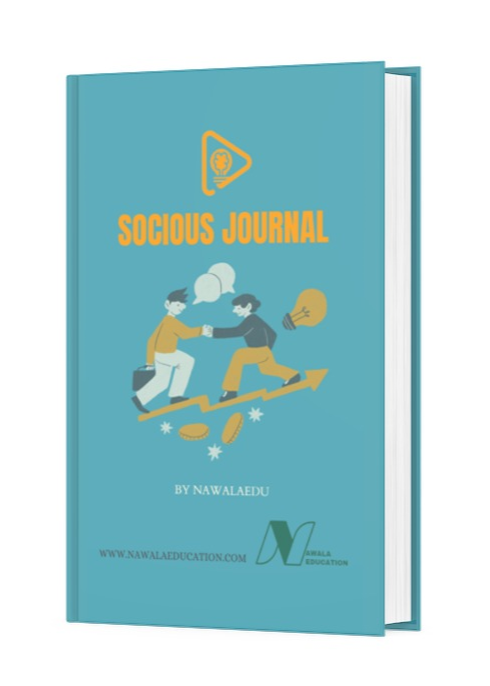The Phenomenon Of 'Cancel Culture' In Indonesia: Between Ethics, Social, And Politics In Digital Space
DOI:
https://doi.org/10.62872/x6p8zw03Keywords:
Cancel Culture, Digital Space, Ethical and Political DynamicsAbstract
The development of information technology and social media has brought about significant transformations in social interactions, creating a complex and inclusive digital space. However, the phenomenon of cancel culture in Indonesia creates complex ethical, social and political challenges. Cancel culture often triggers collective judgments that ignore principles of justice and social responsibility, exacerbating social polarization and expanding the space for extreme views. This study uses a descriptive qualitative approach to explore the dynamics of cancel culture, involving research subjects such as social media users, public figures, communication experts and political actors. The results reveal that the lack of regulation and digital literacy contributes to the manipulation of digital space, where acts of mass judgment are often repressive and used as a politicization tool. To overcome this challenge, a holistic approach is needed that integrates legal regulation with the strengthening of digital literacy that builds critical and ethical awareness in the digital space.
Downloads
References
Anjarini, D. N. (2020). Cancel Culture in the Frame of Comparison of Indonesia and South Korea. Jurnal Scientia Indonesia, 6(1), 59-82.
Bangun, C. R., & Kumaralalita, N. (2022). Kim Seon Ho, You are cancelled: The collective understanding of cancel culture. Jurnal Komunikatif, 11(1), 1-10.
Djick, J. V., & Poell, T. (2013). Understanding Social Logic. Media and Communication.
Fathimah, S., Carolina Sasea, S., & Ekowati Rusdini, S. (2024). Does cancel culture affect the mental health of sexual abusers, or does it affect the victims?. Journal of Public Health, fdae102.
Fitransyah, F., & Aswan, A. (2024). THE TRADITION OF PUBLIC CRITISM IN THE LAPOR PAK PROGRAM (Analysis of the Spiral of Silence Jokes of Comedian Criticism). DISCOURSE: Indonesian Journal of Social Studies and Education, 1(2), 93-119.
Hermiza, M. (2022). Fenomena boikot massal (cancel culture) di media sosial. Jurnal Riset Indragiri, 1(3), 174-181.
Kevin, A. (2023). Analisis Fenomena Cancel Culture dalam Etika “Klik” Manusia di Era Digital Menurut F. Budi Hardiman. SOSMANIORA: Jurnal Ilmu Sosial dan Humaniora, 2(2), 197-203.
Kuncoro, H. R., & Hasanah, K. (2024). How Social Media Algorithms Potentially Reinforce Radical Views. Insignia: Journal of International Relations, 11(2), 126-149.
Kurniawan, T., Ngawan, R., Alno, Y., & Herianto, A. (2022). Cancel Culture and Academic Freedom: A Perspective from Democratic-Deliberative Education Philosophy. Waskita: Jurnal Pendidikan Nilai dan Pembangunan Karakter, 6(1), 1-13.
Lele, G. (2024). Kebijakan Publik Untuk Transformasi Sosial: Sebuah Pendekatan Kritis-Agonistik. UGM PRESS.
McQuail, D. (2011). Teori komunikasi massa.
Metzler, H., & Garcia, D. (2024). Social drivers and algorithmic mechanisms on digital media. Perspectives on Psychological Science, 19(5), 735-748.
Parry-Giles, S. J. (2021). Fix the “Cancel culture” mentality. In Fixing American Politics (pp. 108-116). Routledge.
Patahilah, H. F. (2020). Instagram Fatwa: Analisis Terhadap Pesan Fatwa Dalam Akun Instagram@ dakwahquransunnah. El Madani: Jurnal Dakwah Dan Komunikasi Islam, 1(02), 163-184.
Permata, M. A., & Nurhadiyanto, L. (2024). Perspektif Perilaku Doxing Sebagai Bentuk Cancel Culture pada Pengguna Media Sosial X. Jurnal Ilmu Hukum, Humaniora dan Politik, 4(4), 673-680.
Putri, A., Sari, N., Fajrina, P., & Aisyah, S. (2024). Keamanan Online dalam Media Sosial: Pentingnya Perlindungan Data Pribadi di Era Digital (Studi Kasus Desa Pematang Jering). Jurnal Pengabdian Nasional (JPN) Indonesia, 6(1), 38-52.
Putri, N. A. R. (2024). Analisis Jaringan pada Media Sosial X dengan# Boikot Menggunakan Social Network Analysis. IJITECH: Indonesian Journal of Information Technology, 2(1), 11-15.
Rasyid, H. J. A., Rahman, H. J. A., Azzam, A. F., Sabila, B. F., & Radianto, D. O. (2023). Menjelajahi Etika: Tinjauan Literatur Terbaru tentang Prinsip-prinsip Etika, Konflik Moral, dan Tantangan dalam Kehidupan Kontemporer. CEMERLANG: Jurnal Manajemen Dan Ekonomi Bisnis, 3(2), 229-237.
Suhendra, S., & Pratiwi, F. S. (2024, October). Peran Komunikasi Digital dalam Pembentukan Opini Publik: Studi Kasus Media Sosial. In Iapa Proceedings Conference (pp. 293-315).
Sulianta, F. (2024). Resolusi Konflik Ranah Digital. Feri Sulianta.
Susiang, M. I. N., & Ghofur, M. (2024). The Influence of Social Media on Changes in Social Values among Millennials. Socious Journal, 1(5), 21-28.
Syamsidar, S., Muhammad Reza, Z., Eka Ari, E., & Retno Sari, D. (2023). Tantangan dalam Menjaga Kebebasan Berpendapat di Era Digital.
Yanti, N., Tinambunan, M. R., Nasution, I., Situmorang, S. H., & Sembiring, B. K. F. Cancel Culture: Unveiling the Dark Side of Social Media for Brands–A Systematic Literature Review.
Downloads
Published
Issue
Section
License
Copyright (c) 2024 Ni Ketut Widhiarcani Matradewi (Author)

This work is licensed under a Creative Commons Attribution-ShareAlike 4.0 International License.

This work is licensed under a Creative Commons Attribution-ShareAlike 4.0 International License.











